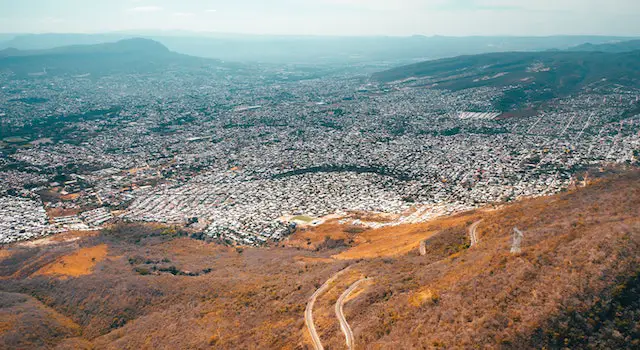Is Urban Planning A Good Career?
Urban planning can be a rewarding job for people passionate about building and enhancing communities. Urban planners build and manage towns, cities, and other urban regions with an eye toward economic growth, livability, and sustainability.
Urban planning offers a wide range of employment options, including positions with the government, nonprofit organizations, and commercial consulting firms. Urban planner, transportation planner, housing planner, and environmental planner are a few examples of frequent occupational titles.
What Is Urban Planning?
Urban planning refers to planning and managing towns, cities, and other urban zones to ensure sustainable living, livability, and economic growth. It involves a range of disciplines, such as engineering, architecture, geography, and public policy, among others. Urban planning aims to balance the interests of various stakeholders, such as businesses, residents, and government agencies, to create functional and vibrant communities.
History Of Urban Planning
Urban planning is a complex and long history dating back to past ancient civilizations, such as the Indus Valley and Mesopotamia. The first cities of these civilizations were typically built around central markets and religious structures, with houses and public buildings laid out in a grid. In the Middle Ages, European cities expanded rapidly, leading to overcrowding, poor sanitation, and social tension. To address this, city officials came up with building codes, zoning laws, and other rules to manage the growth of cities.
In the 19th and 20th centuries, urban planning was a discipline, thanks to the establishment of professional associations, universities, and government agencies dedicated to this field. Urban planners began to employ scientific techniques to analyze and plan cities while incorporating the principles of social equity, sustainability of the environment, and economic development. Nowadays, urban planning has become a worldwide profession, with practitioners working in cities all over the globe.
Land Use Planning
Planning for land use is among the most crucial elements of urban planning. It identifies and distributes land for different purposes, including residential, industrial, commercial, and recreational. Land use planning seeks to balance different land-use types while considering the requirements of the community and the environment.
There are a variety of key elements of planning for land use. One of them is zoning. This involves subdividing land into different districts or zones, each with its rules and allowed uses. Zoning ensures that land use types are separate and that development takes place in the most appropriate areas.
Another crucial aspect of planning land use is comprehensive, which is creating a long-term strategy for the growth of an entire community. Comprehensive plans usually include plans for land use, policies, and strategies to achieve various objectives, including economic growth, protecting the natural resources of the area, as well as increasing living standards.
Environmental Planning
Environmental planning is an essential element of urban planning. It is the process of identifying and managing environmental resources, like air, water, and natural habitats. Environmental planning aims to ensure sustainability and safeguard natural resources while ensuring that development is in line with the requirements of the people.
There are many key elements in environmental planning. First, there is the identification and evaluation of resources in the environment. This requires conducting research and analysis to determine the present environmental situation and identify areas of concern.
Another key aspect of environmental planning is the creation of environmental regulations and policies. These regulations and policies regulate the use of resources in the environment and ensure that development conforms to environmental standards.
Types Of Urban Planning Jobs
Urban planning is a broad field that offers a variety of career opportunities. Urban planners are employed in various situations, including government agencies, nonprofit organizations, private consulting companies, and universities.
Urban Planner
Urban planners are experts working to plan and manage towns, cities, and other urban zones. They utilize their understanding of the urban planning process and its principles to design policies and plans that encourage sustainable and liveable communities. Public agencies, nonprofit organizations, or private consulting companies can employ urban planners.
There are many important jobs that urban planners could do. They can be involved in conducting research and analysis, drafting plans for land use and zoning rules, and engaging with stakeholders and community members to collect feedback and input. Urban planners could also be involved with environmental planning, transportation planning, and community development.
To become a planner for urban areas, it is usually necessary to have a doctorate in urban planning or another related field. Urban planners might also hold degrees in engineering, architecture, or geography.
Transportation Planner
Transportation planning professionals help create and manage transportation systems within urban environments. They apply their understanding of transportation planning principles and practices to create strategies and policies that enhance accessibility and mobility while also cutting down on air pollution, congestion, and greenhouse gas emissions.
There are a variety of key activities that planners of transportation can accomplish. They are responsible for doing studies and analyses, drafting transportation policies and plans, and designing transportation infrastructure, such as highways, roads, public transit systems, and bicycle and pedestrian-friendly infrastructure. Transportation planners can engage with the public by working with community members and other stakeholders to collect feedback and input.
For a person to be a transportation planner, it is usually necessary to hold a master’s education in transportation or another related field. Some transportation planners hold urban planning, civil engineering, or geography degrees.
Housing Planner
Housing planners are experts who create affordable and fair housing in urban areas. They utilize their knowledge of housing policies and planning to design programs and initiatives that expand the availability of affordable housing for people with low and moderate-income families.
There are many important jobs that housing planners could accomplish. They are responsible for performing studies and analyses, creating housing-related policies and programs, and cooperating with developers and other community groups to create affordable housing options. Housing planners can also be involved in engagement and outreach to the public and work with residents and other stakeholders to gather feedback and input.
To become a housing planner, it is usually necessary to have a master’s degree in housing policy or another related field. Some housing planners hold degrees in economics, urban planning, or public policy.
Urban Planning Specializations
Urban planning is a broad field that has a variety of specializations. Based on their career interests and goals, urban planners might decide to specialize in a specific area of expertise.
Land Use Planning
Planning for land use is a specialty in urban planning that concentrates on urban land use administration. Planners of land use work to develop land use plans and zoning regulations that encourage sustainable and livable communities.
The most important duties that land use planners could do are conducting study and analysis, drafting plans for land use and zoning rules, and working with community members and other stakeholders to gather feedback and input. Land use planners could additionally be involved in the process of environmental planning and historic preservation, as well as affordable housing.
To become a land-use planner, it is usually required to hold a graduate degree in urban design or another related field. Certain land use planners also hold engineering, architecture, or geography degrees.
Economic Development Planning
Economic development planning is a sub-specialization that promotes economic development and growth within urban regions. Economic development planners develop programs and initiatives that bring in businesses, create jobs and boost economic activity.
Some of the most important duties that economic planners can accomplish include conducting studies and analyses, preparing economic plans and programs for growth, and working with community groups and business leaders to develop economic opportunities. Economic development planners can engage in outreach to the public and involvement by working with community members and other stakeholders to gather feedback and input.
To become an economic development planner, it’s usually required to hold an advanced degree in urban planning or another related field. Certain economic development planners also hold business, economics, or public policy degrees.
Salary Expectations For Urban Planning Jobs
It is an enthralling field with numerous opportunities for advancement and growth. Like all professions, the salary expectations for urban planners will differ based on various variables such as the amount of education, experience, and location.
Education And Experience
One of the most significant factors affecting salary expectations for urban planning jobs is education and experience. The general rule is that those with higher degrees and years of knowledge of the subject are likely to earn more than those just beginning their journey.
For instance, someone who has just graduated with an undergraduate master’s degree in urban planning could begin with an entry-level wage of $40,000-$50,000 per year. But, someone who has a master’s degree in urban planning and a few years of experience can make a mid-level income that ranges from $60,000 to $80,000 annually.
Geographic Location
Another factor that can influence salaries for urban planning jobs is location. Salaries can be wildly different based on the region where you work and also the size and type of company you work for.
For instance, urban planners working in metropolitan or large city areas may earn more than those working in rural or smaller cities. In the same way, those working for government agencies or nonprofit organizations could be paid less than private consultancy companies or developers of real estate.
According to information from the Bureau of Labor Statistics, urban planners who work in California, New York, and Massachusetts generally have the highest and median annual salaries of between $80,000 and $95,000. However, those working in states like Arkansas, Idaho, and Mississippi tend to have lower median salaries, which range between $55,000 and $65,000 annually.
Work Environment And Work-Life Balance For Urban Planners
Urban planning is a broad and lucrative field that provides many career options. Along with the job responsibilities and salary expectations, the work environment and a balanced work-life are key aspects to consider when considering an urban planning career.
Work Environment
Urban planners are employed in various environments, including government agencies, consulting firms, nonprofit organizations, and private businesses. The work environment may vary greatly based on the particular job and organization.
For instance, employees in government agencies could be employed in offices located in buildings of county or city halls or offices. In contrast, those employed by consulting firms could divide their work time between office and site visits to projects for development. Nonprofit organizations can have a more relaxed working environment, offering telecommuting opportunities or flexible working hours.
Whatever the job setting, urban planners can be expected to collaborate with other professionals such as engineers, architects, and community leaders. Communication and cooperation are crucial capabilities to be successful in the field.
Work-Life Balance
Urban planning is an extremely demanding job requiring a lot of effort, especially when deadlines are set for projects or public gatherings. But, many companies recognize the importance of balancing work and family and are committed to providing an accommodating and flexible workplace.
Flexible working hours, telecommuting alternatives, and generous time off for vacation are only a few ways that companies can facilitate the balance between work and life for their employees. Additionally, some organizations might provide well-being programs and mental health services that can help support employees’ well-being.
Urban planners must focus on self-care and establish healthy boundaries between work and life. This could include limiting working hours, delegating work to colleagues when needed, and finding ways to recharge or unwind during the off-hours.
Job Satisfaction
Despite the demands of their job, many urban planners find their work extremely rewarding and satisfying. The possibility of impacting communities and increasing the living conditions for those living there can be an effective motivational factor.
Additionally, urban planning provides opportunities to develop and grow professionally, possibly specializing in sustainability transportation, sustainability, or economic development. Professional networking and continuing education can aid urban planners in staying up-to-date with the latest developments and trends within the field.
Overall, a career path in urban planning can be an exciting and fulfilling work environment with professional and personal development opportunities. By focusing on the balance between work and life and self-care, urban planners can succeed while ensuring their health and overall quality of life.
Advancements And Opportunities For Growth In Urban Planning
Urban planning constantly changes, with fresh developments and growth opportunities emerging.
Technology And Innovation
One of the most important areas of progress in the field of urban planning is innovation and technology. Software and tools are constantly being developed to assist urban planners in visualizing and interpreting data, creating better transportation systems, and calculating how new developments affect the city.
For instance, Geographic Information Systems (GIS) are used extensively for urban planning, analyzing data to produce visual representations of complicated information. Software for 3D modeling can assist planners in creating more realistic and precise designs for public and private spaces. Virtual reality tools let stakeholders and planners test and evaluate projects in a simulated, interactive, and immersive environment.
Urban planners must keep up-to-date with the most up-to-date tools and techniques as technology advances to remain competitive.
Sustainability And Resilience
Another area of growth and progress in urban planning is sustainability and resilience. With environmental and climate change issues becoming increasingly urgent urban planners are asked to create communities and cities that are more resilient and sustainable in the face of natural disasters and other threats.
This may involve designing green infrastructure, including rain gardens, green roofs, and permeable pavement to control stormwater runoff and lessen urban heat island impact. It can also include renewable power sources in development plans, like wind and solar power. It can also involve the design of public spaces and buildings that are more energy efficient and less greenhouse gas emissions.
The sustainability and resilience of our planet will continue to be the top priority of urban planners in the upcoming years as communities and cities are looking for ways to lessen the effects of climate change and create more sustainable, healthy, and livable environments.
Equity And Inclusion
Urban planning has long been accused of perpetuating inequality and exclusion of communities with a history of discrimination from decision-making. However, there is a growing awareness of the need for equity and inclusion among planners in urban areas. Need to be at the top of every planning effort.
This could mean designing public areas and transport systems accessible to everyone regardless of race, income, or physical ability. It can also mean participating with the local community and observing the residents’ demands and concerns to ensure that decisions made in planning reflect the needs of the people in the community.
Urban planners who focus on inclusion and equity when they work create more equitable and fair communities in which all residents have access to the opportunities and resources they require to succeed.
Career Advancement
Additionally, there are numerous opportunities for advancement and growth in urban planning. Urban planners can specialize in a wide variety of areas, including transportation planning, land use planning, and economic development.
Additionally, urban planners can take on advanced degrees, like an MS in Urban Planning or a Ph.D. in Planning and Public Policy, to increase their knowledge and skills. Professional associations, like the American Planning Association, offer certification and training programs that aid urban planners in staying up-to-date with the most recent techniques and trends in the field.
Urban planning provides numerous chances for growth and progress and the possibility of contributing to communities and enhancing the living conditions for residents. By keeping up-to-date with the most recent developments and focusing on including equity and diversity in their work, urban planners can create more sustainable and resilient communities and cities for everyone.
FAQ’s
What is urban planning?
Urban planning is the process of designing and managing the physical, social, and economic development of cities and urban areas. This includes land use, transportation, housing, public spaces, and other aspects that affect the built environment.
Is urban planning a good career?
Urban planning can be a rewarding career for people who are interested in making a positive impact on their communities. It offers opportunities to work on projects that can shape the future of cities, improve quality of life for residents, and address social and environmental challenges.
What are the educational requirements for urban planning?
Most urban planning positions require a bachelor’s or master’s degree in urban planning, geography, architecture, or a related field. Some positions may also require additional certifications or licenses, depending on the specific job duties.
What are the job prospects for urban planners?
According to the U.S. Bureau of Labor Statistics, employment of urban and regional planners is projected to grow 11 percent from 2020 to 2030, much faster than the average for all occupations. As cities continue to grow and face new challenges, the demand for skilled urban planners is likely to remain strong.
What are the typical duties of an urban planner?
Urban planners may work on a wide range of projects, from developing zoning regulations and transportation plans to creating public spaces and promoting sustainable development. They may also work with community groups, developers, and government agencies to gather input and create plans that reflect the needs and preferences of local residents.
What skills are needed for a career in urban planning?
Successful urban planners need a combination of technical, analytical, and interpersonal skills. This includes a strong understanding of urban design principles, data analysis and modeling, communication and collaboration skills, and a commitment to community engagement and social justice.



















